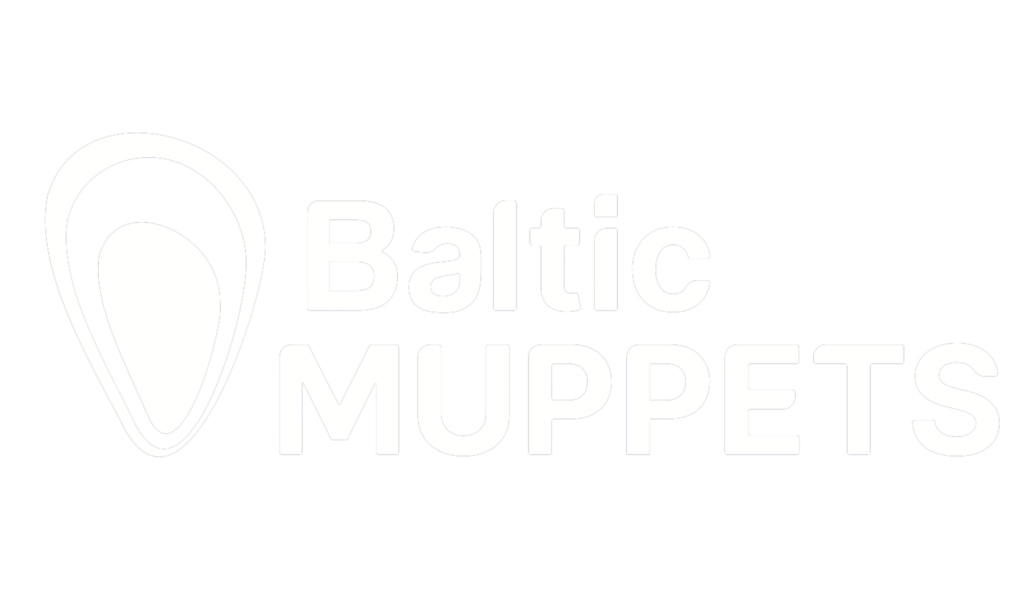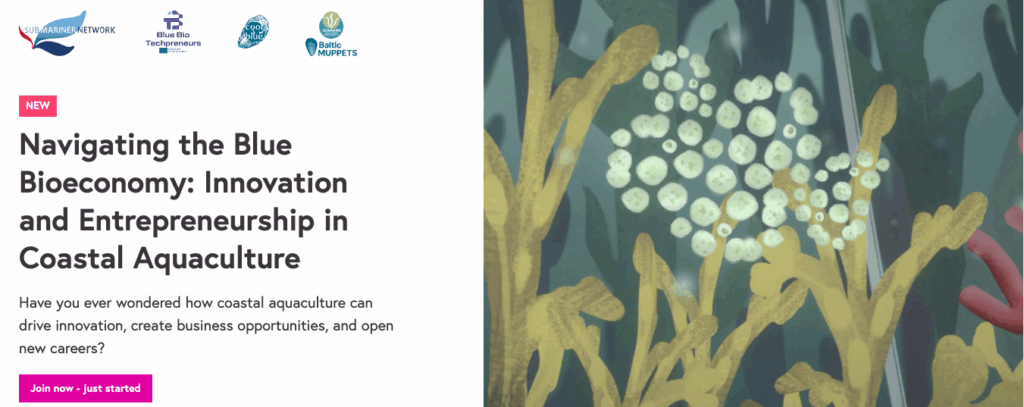EDUCATION & TRAINING
Online Courses
This free course is based on the work of the H2020 IMPAQT project, and is designed to give you an overview of Integrated Multi-Trophic Aquaculture or IMTA, including a course on mussels. It describes the concept, the benefits and challenges. It will also present the tools of Precision Aquaculture, the technologies and practices, and discuss the sustainability of IMTA, along with the need for and tools to monitor and manage an IMTA farm.
Developed as part of the FLORES project and drawing from the expertise of projects like MUSES, UNITED, ULTFRAMS, MULTI-FRAME, etc. this MOOC offers an introductory study to the topic of ocean multi-use, with a specific focus on multi-use combinations that include offshore wind farms.
Module 5 “Space Efficient Offshore Energy Solutions – Energy Islands, Multi-Use, and Others” specifically focuses on blue mussels and seaweed integration.
Baltic MUPPETS has contributed to this third course of the SUBMARINER/Blue Biotechpreneurs MOOC on coastal blue economy entrepreneurship.
It is a 4-week course spanning over topics like basic ecology to understand coastal aquaculture to market applications, technology innovation, IPR and leadership.
It targets entrepreneurs, students, researchers, and professionals interested in land-based aquaculture, algae innovation, and sustainable business development in the blue bioeconomy.
Video Library
This mussel farm in St. Anna’s archipelago is a successful example of mussel farming for nutrient reduction in the Baltic Sea.
Processing steps used in producing fish feed based on blue mussels and black soldier fly larvae.
Euronews reports on an unexpected eco-solution in the Baltic Sea: mussel farms.
Mussel harvesting operations at Kieler Meeresfarm were filmed as part of the Baltic Blue Growth project.
Grobruket uses side-stream mussel shells from the production of pet treats to make compost and soil enhancers.
A new Baltic Sea Factory production line for small mussels.
Baltic MUPPETS visit to Wittrup Seafood’s processing facility in Denmark.
Baltic MUPPETS visit to Wittrup Seafood’s mussel farm in Denmark.
Baltic MUPPETS visit to a submerged mussel farm operated by Ecopelag in Västervik, Sweden.
SUBMARINER Working Group on improving data use and sharing to track biodiversity and ecosystem trends.
SUBMARINER Working Group on how smarter monitoring fuels sustainability and innovation in the blue economy.
WaSeaBi recovers valuable compounds from mussel cooking water to create savoury ingredients.

